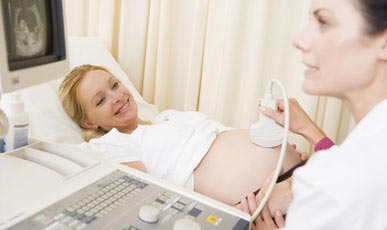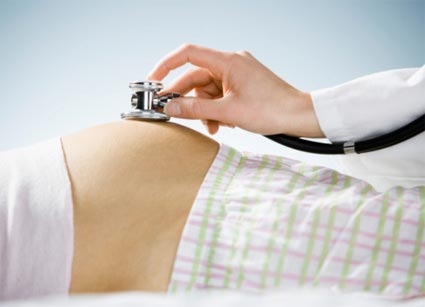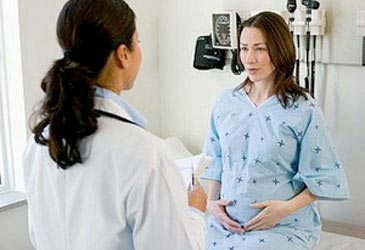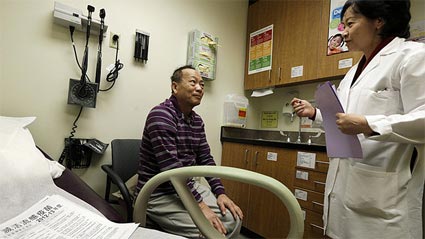Spina bifida is a debilitating disease. It is generally due to deficiency of folic acid during pregnancy. Spina bifida is a neural tube defect wherein the brain, spinal cord are not adequately developed. Prenatal testing for spina bifida helps in detecting neural tube defects in the unborn baby. Read on to know how.The exact cause that leads to spina bifida which is primarily a neural tube defect is not clearly known as yet. The disease term actually means ‘cleft spine’ where the brain, spinal cord are not adequately developed. Even the protective sheath called meninges, that covers the brain and spinal cord is underdeveloped. Despite the years of research it is still a mystery regarding the exact cause that leads to the disruption or total closure of the neural tube. The condition eventually leads to the development of malformation. In this articleThere are Four Variants of Spina BifidaHow is the Prenatal Testing for Spina Bifida Done?What is MSAFPObjectives of MSAFPWhen is MSAFP Carried Out?AmniocentesisThere are Four Variants of Spina Bifida Occulta Closed neural tube defects Meningocele Myelomeningocele There are three primary aspects that lead to spina bifida: genetic, nutritional and environmental factors. This is why it is strongly advised that the woman ensures a regular intake of folic acid as the lack of it has been directly related to the disease in the baby. The condition of the mother and the likelihood of the unborn child developing the disease can be ascertained through prenatal testing. How is the Prenatal Testing for Spina Bifida Done? The prenatal testing for spina bifida happens in several stages during the pregnancy term. During the second trimester, MSAFP and fetal ultrasound is suggested. What is MSAFP - This is known as maternal serum alpha fetoprotein screening. There is vital protein known as AFP or alpha feto-protein which is produced in the placenta and the fetus through a natural process. The screening basically measures the level of this protein. When pregnancy occurs, it is natural that a certain amount of this protein, which is very negligible, passes through the placenta and mixes with the blood stream of the mother. During the MSAFP screening it is tested whether the mother is having an abnormally high level of this protein in her blood stream. If the levels are very high, it is an indication that the fetus is having a neural tube defect. Objectives of MSAFP - It is important to note here, that the only objective of the MSAFP screening is not limited to test whether the baby is likely to suffer from spina bifida. It has been found that the test cannot provide definite results on whether there is indeed a serious problem with the fetus. If the screening reveals that there is a very high level of AFP, the doctor immediately suggests some more prenatal testing like an ultrasound or amniocentesis. When is MSAFP Carried Out? - MSAFP screening is also carried out in the second trimester of the pregnancy. It can be a solo screening or in combination with other prenatal tests that is, as a part of a multiple marker screen. This is considered to be a more effective one as not only the neural tube defects are ascertained, but other possible birth defects can also be successfully identified. These include chromosomal abnormalities or down syndrome. The difference between these two prenatal testing through MSAFP lies in the fact that, in the first trimester testing, the chromosomal abnormalities can be identified. But the signs that directly define spina bifida are not really evident. Whereas when the test is carried out in the second trimester, the results are more definitive. Amniocentesis Spina bifida can be screened through this prenatal test. Here a sample of fluid is drawn out from the amniotic sac that envelopes the fetus. The fluid is then tested to find whether the baby is likely to develop this disease. There is an important point to note here – the amniocentesis test finds out the level of AFP and thereby conclude whether the disorder is at all present or not. But the test does not indicate the degree or severity of spina bifida.
Spina bifida is a debilitating disease. It is generally due to deficiency of folic acid during pregnancy. Spina bifida is a neural tube defect wherein the brain, spinal cord are not adequately developed. Prenatal testing for spina bifida helps in detecting neural tube defects in the unborn baby. Read on to know how.The exact cause that leads to
spina bifida which is primarily a neural tube defect is not clearly known as yet. The disease term actually means ‘cleft spine’ where the brain, spinal cord are not adequately developed. Even the protective sheath called meninges, that covers the brain and spinal cord is underdeveloped. Despite the years of research it is still a mystery regarding the exact cause that leads to the disruption or total closure of the neural tube. The condition eventually leads to the development of malformation.
There are Four Variants of Spina Bifida
- Occulta
- Closed neural tube defects
- Meningocele
- Myelomeningocele
There are three primary aspects that lead to spina bifida: genetic, nutritional and environmental factors. This is why it is strongly advised that the woman ensures a regular intake of folic acid as the lack of it has been directly related to the disease in the baby. The condition of the mother and the likelihood of the unborn child developing the disease can be ascertained through prenatal testing.
How is the Prenatal Testing for Spina Bifida Done?
The prenatal testing for spina bifida happens in several stages during the pregnancy term. During the second trimester, MSAFP and fetal ultrasound is suggested.
What is MSAFP -
This is known as maternal serum alpha fetoprotein screening. There is vital protein known as AFP or alpha feto-protein which is produced in the placenta and the fetus through a natural process. The screening basically measures the level of this protein. When pregnancy occurs, it is natural that a certain amount of this protein, which is very negligible, passes through the placenta and mixes with the blood stream of the mother. During the MSAFP screening it is tested whether the mother is having an abnormally high level of this protein in her blood stream. If the levels are very high, it is an indication that the fetus is having a neural tube defect.
Objectives of MSAFP -
It is important to note here, that the only objective of the MSAFP
screening is not limited to test whether the baby is likely to suffer from spina bifida. It has been found that the test cannot provide definite results on whether there is indeed a serious problem with the fetus. If the screening reveals that there is a very high level of AFP, the doctor immediately suggests some more prenatal testing like an ultrasound or amniocentesis.
When is MSAFP Carried Out? -
MSAFP screening is also carried out in the second trimester of the pregnancy. It can be a solo screening or in combination with other prenatal tests that is, as a part of a multiple marker screen. This is considered to be a more effective one as not only the neural tube defects are ascertained, but other possible birth defects can also be successfully identified. These include chromosomal
abnormalities or down syndrome.
The difference between these two prenatal testing through MSAFP lies in the fact that, in the first trimester testing, the chromosomal abnormalities can be identified. But the signs that directly define spina bifida are not really evident. Whereas when the test is carried out in the second trimester, the results are more definitive.
Amniocentesis
Spina bifida can be screened through this prenatal test. Here a sample of fluid is drawn out from the amniotic sac that envelopes the fetus. The fluid is then tested to find whether the baby is likely to develop this disease. There is an important point to note here – the amniocentesis test finds out the level of AFP and thereby conclude whether the disorder is at all present or not. But the test does not indicate the degree or severity of spina bifida.
































